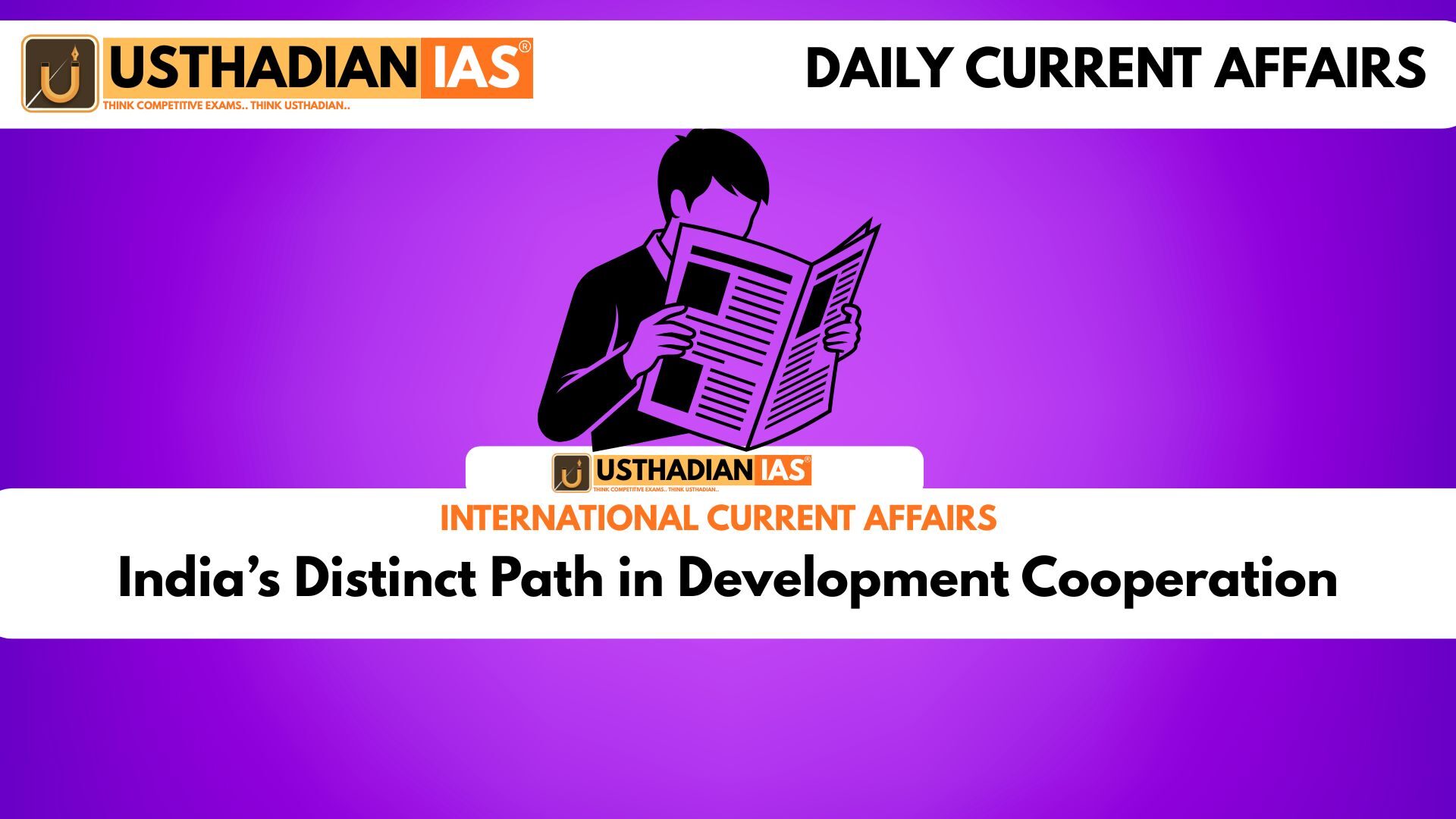India’s Evolving Global Development Role
India’s Distinct Path in Development Cooperation: India’s development cooperation model represents a shift from aid dependency to partnership-based collaboration. It stands apart from traditional donor-driven systems by prioritizing mutual respect, demand-based initiatives, and shared growth. This approach enhances India’s image as a reliable partner in the Global South, emphasizing inclusivity and sustainability.
Static GK fact: India’s development cooperation aligns with the five principles of Panchsheel (1954) — mutual respect, non-aggression, non-interference, equality, and peaceful coexistence.
Demand-Driven Model
A defining feature of India’s model is its demand-driven nature, where proposals originate from partner governments. This ensures that projects address local priorities instead of donor interests. The India-UN Development Partnership Fund, launched in 2017 under the UN Office for South-South Cooperation (UNOSSC), supports such country-led initiatives across Africa, Asia, and the Pacific.
Static GK Tip: The India-UN Development Partnership Fund has supported over 60 projects in 50+ developing countries, focusing on health, renewable energy, and climate resilience.
Focus on Capacity Building
India places strong emphasis on human resource development and institutional strengthening rather than direct financial aid. The Indian Technical and Economic Cooperation Programme (ITEC), run by the Ministry of External Affairs, has trained officials from over 160 countries in governance, technology, and entrepreneurship. This focus enhances self-reliance among partner nations.
Static GK fact: The ITEC programme was launched in 1964, making it one of the oldest capacity-building initiatives in the developing world.
Support to Vulnerable Economies
India gives special attention to Least Developed Countries (LDCs) and Small Island Developing States (SIDS) through initiatives like the Indian Development and Economic Assistance Scheme (IDEAS). The scheme provides Lines of Credit (LoC) via the Export-Import Bank of India, supporting infrastructure, agriculture, and energy projects in both African and non-African developing countries.
Static GK Tip: Under IDEAS, India has extended LoCs worth over USD 12 billion across 42 African countries.
Promoting Ownership and Transparency
India’s cooperation model blends local ownership with multilateral credibility by collaborating with global institutions such as the United Nations. This partnership ensures transparent implementation and minimizes political influence. Initiatives like the India-UN Global Capacity-Building Initiative are examples of India’s commitment to accountability and inclusive growth.
Static GK fact: India is one of the few developing countries maintaining a dedicated development partnership agency under the Ministry of External Affairs — the Development Partnership Administration (DPA).
The Way Forward
To strengthen this model, India could introduce real-time monitoring dashboards, enhance transparency, and encourage inclusive partnerships involving civil society, private sector, and women-led enterprises. Regular evaluation mechanisms would ensure adaptability to emerging challenges like climate change, digital transformation, and global economic shifts.
Static Usthadian Current Affairs Table
India’s Distinct Path in Development Cooperation:
| Topic | Detail |
| India-UN Development Partnership Fund | Established in 2017 under UNOSSC to support Global South projects |
| ITEC Programme | Trains officials from over 160 countries; launched in 1964 |
| IDEAS Scheme | Provides Lines of Credit through EXIM Bank of India |
| Focus Countries | Least Developed and Small Island Developing States |
| Partner Organization | UN Office for South-South Cooperation |
| Implementation Principle | Demand-driven and sovereignty-respecting |
| Key Example | Vaccine Maitri for global vaccine support |
| Development Partnership Administration | Agency under MEA managing India’s aid initiatives |
| Major Partner Region | Africa and Indo-Pacific |
| Core Philosophy | South-South Cooperation and mutual growth |








